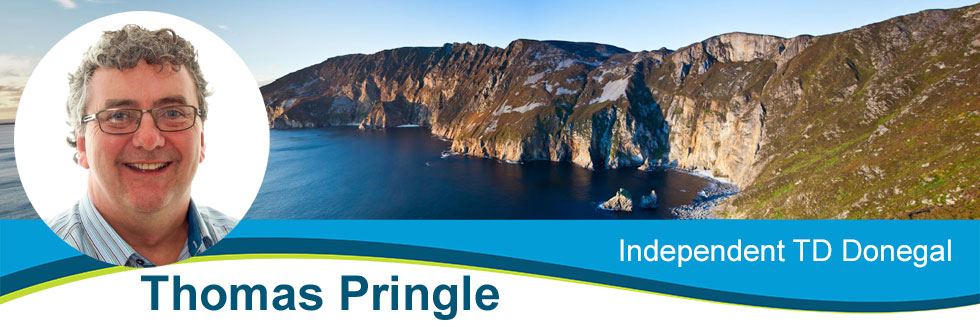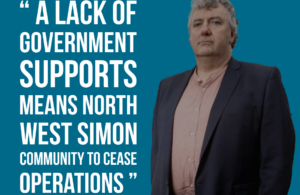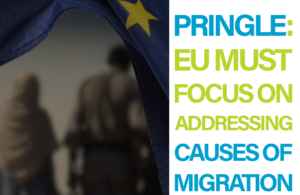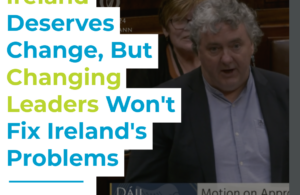EPA Emissions report for 2018 shows that Government policies are to blame for another emissions fiasco
- Updated: 24th October 2019

Thomas Pringle TD
Press release 24th October 2019
Leinster House, Dublin
Today the EPA launched its latest emissions data from 2018. The inventory shows that Ireland’s emissions fell very slightly on account of reductions in the energy sector, along with technical problems which forced the closure of the ESB Moneypoint coal fired power station for a number of months. However, Ireland exceeded the annual EU emissions allocation for 2018 by over 5 million tonnes, which is 2 million tonnes more than the previous year. And emissions from the key sectors of buildings/ heating, transport and agriculture continued to increase.
- Household/buildings/heat emissions increased by 7.9% as oil still dominant fuel
- Transport emissions increased by 1.7% for the fifth year out of the last 6
- Agriculture emissions increased by 1.9% reflecting higher dairy cow numbers
According to Deputy Pringle,
“The Government and Minister Richard Bruton will doubtless point to the adoption of the new all of Government Climate Plan in June of this year and say that the Government is making progress. But the Minister is using Ireland’s disastrous performance as an opportunity for publicity. Because it’s the Government’s policies that are to blame for the increases!
Looking at the figures, it is clear that the blame can be put squarely on the Government which has aggressively pursued policies to expand dairy production for export at the expense of diversification and sustainable rural jobs. The FG-led Government has done virtually NOTHING to provide households especially those with lower incomes with the means to replace old and expensive oil boilers with new zero-carbon heating systems. It has done virtually NOTHING to provide new and additional public transport services.
Everybody who’s not a Dublin-based FG TD knows that the climate challenges facing rural Ireland are particularly difficult. We have been told since the National Climate Mitigation Plan was adopted in 2017 to shift to public transport that does not exist. We are expected to invest tens of thousands of euro of OUR money in a new electric car, or in a deep retrofit, so that the Government can meet targets. Meanwhile the Government still spends billions of TAX-PAYERS’ money on white elephants or poorly managed projects (e.g. €3bn of public money to a private entity for the delivery of broadband) and supporting fossil fuel industries with subsidies and exemptions.
But what I find really shocking that the EPA – our national Environmental Agency – seems incapable of stating the truth. They state
“reversing this trend will require the widespread transition to electric vehicles, increased use of public transport and reducing the number of car journeys”.
The EPA appear to have swallowed the Fine Gael line that it’s up to individuals to reduce emissions. But how does an individual organise a bus route or buy a bus? I can’t reduce the number of journeys I make if I don’t have access to public transport or shared mobility choices. The CSO found in the last census that just 700 people in Donegal can take a bus to work, with more than 3,500 walking and 36,000 driving to work daily. These figures highlight the lack of public transport infrastructure to meet our clear community needs.
In the Joint Oireachtas Committee’s report of March 2019 on climate action, I got support from the other parties for a series of radical measures to boost public transport provision in rural areas. But this vital infrastructure is as far away as ever. This statement betrays an ignorance and urban bias from a state agency that is unacceptable.
The numbers tell the truth. I call on the media not to report the Minister’s ‘spin’. Our emissions are going up because the Government has failed to do anything to bend the emissions curve downwards. In the 28 years since 1990 (the base year for climate targets) Ireland has never managed to get emissions below their 1990 levels, which we committed to doing when we ratified the UN Convention on Climate Change. Worse still, our failure to meet the 2020 targets mean that we are even further off course to get to net zero even by 2050. To be on a pathway to net zero, the Government needs to urgently produce a plan that will reduce emissions by 6-7% per annum from 2020, not the paltry 2% set out in the Minister’s Climate Plan.”



